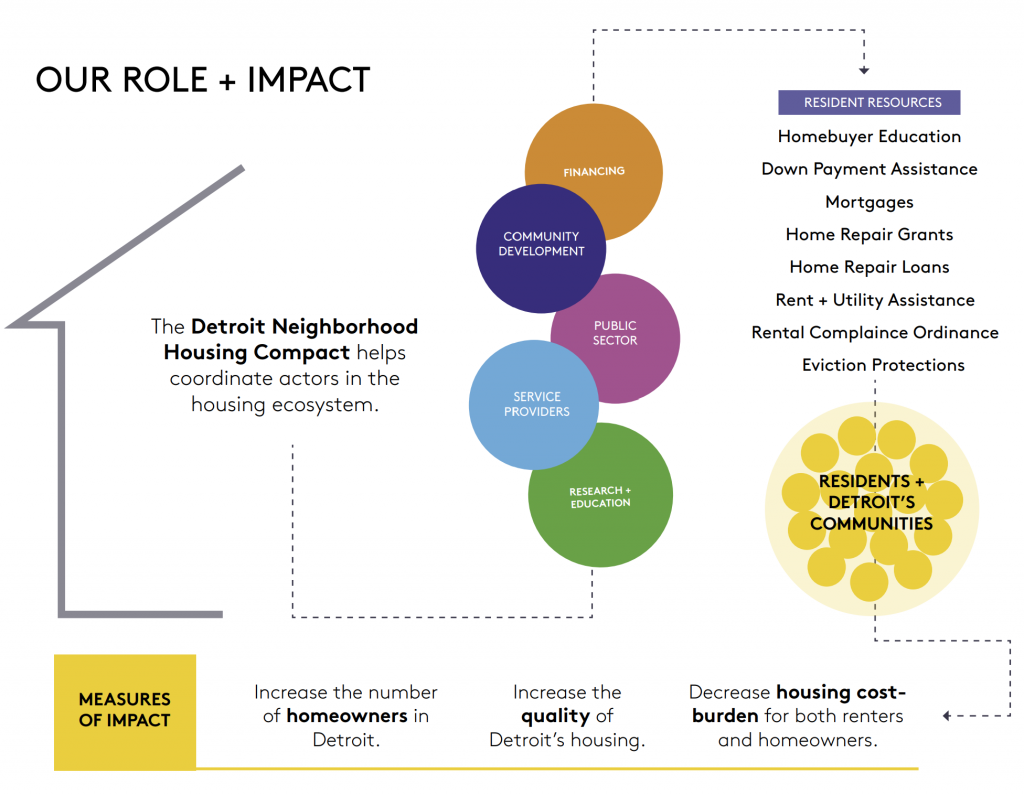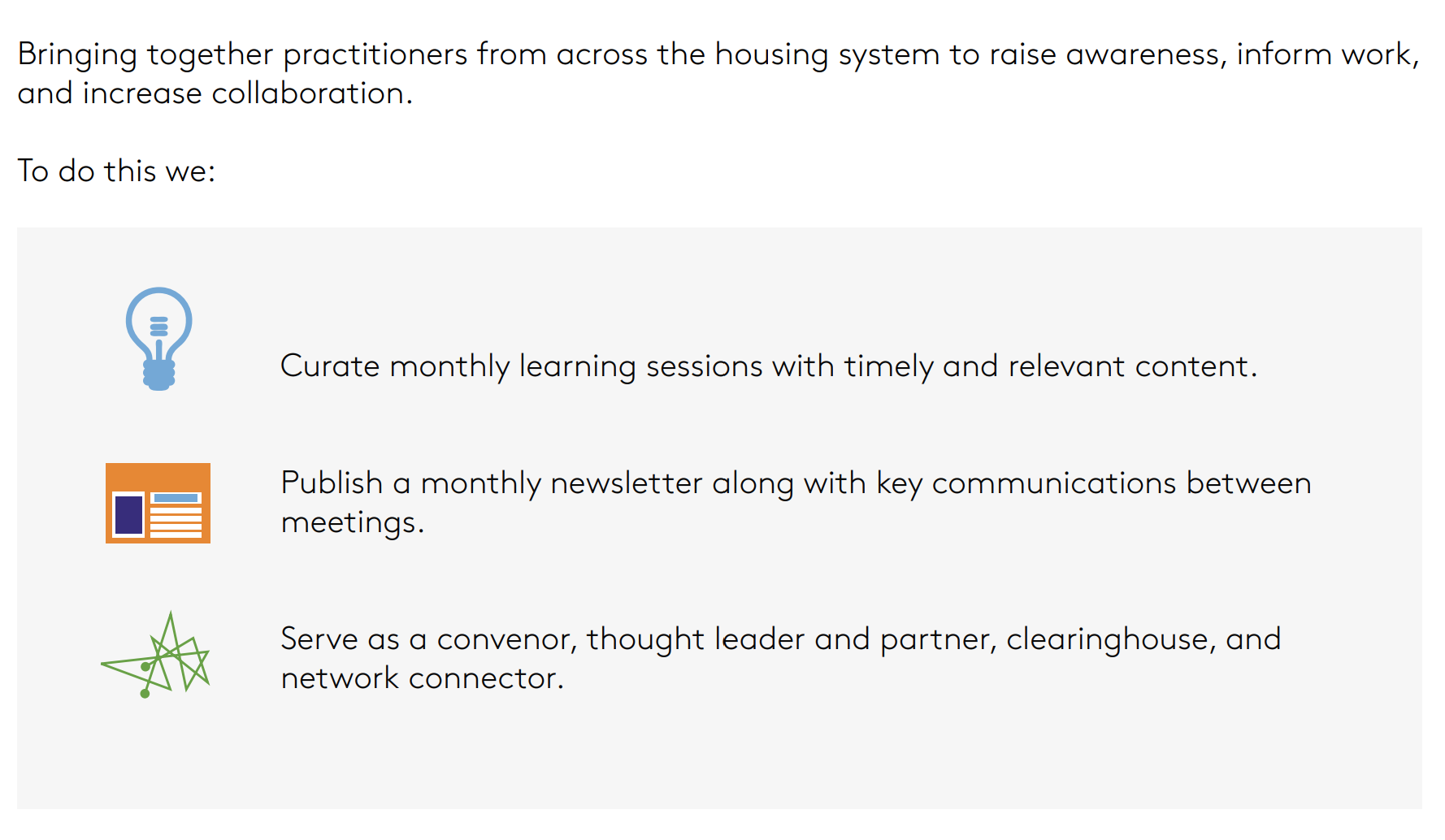Modeled after a successful 10-year collaborative initiative in Chicago, DFC is bringing together stakeholders to take collective action
The Detroit Neighborhood Housing Compact (DNHC) is a forum for regular collaboration and collective action by more than 80 public, private, philanthropic, and non-profit stakeholders.
The Compact’s central goal is to increase the availability of stable, healthy, and affordable single-family homes for renters, homebuyers and homeowners in Detroit.
Detroit Future City serves as the backbone organization of the Housing Compact. We convene regular meetings of Compact stakeholders to provide information and research to inform dialogue leading to the development of policy and action proposals.


– Get engaged: Monthly rental and homeownership work groups meet every third Tuesday.
– Stay informed: Sign up for the newsletter to get meeting presentations, current resources, and upcoming meeting agendas.
– Increase Homeownership: Add 3,500 low/moderate income homeowners (making less than $50,000) outside of greater downtown.
– Increase Housing Quality: Increase rental ordinance compliance rate to 50%.
– Decrease Cost Burden for Homeowners: Reduce by 20% the number of homeowners making less than $50,000/year who pay more than 30% of their income in housing cost.
– Decrease Cost Burden for Renters: Reduce by 20% the number of renters making less than $50,000/year who pay more than 30% of their income in rent/housing expenses.
There are 203,700 single-family households in the City of Detroit, making it the most common type of housing in Detroit neighborhoods. The majority of single-family renters and homeowners cannot afford their housing costs, including maintenance and there are too few move-in ready homes for homebuyers, particularly at an affordable price point.
Also, many home repair programs don’t exist at the scale to address the need, further lower-income people are most impacted by trying to locate and apply for support. The COVID-19 pandemic has created new challenges for household stability. New strategies of support will be needed when eviction and foreclosure moratoriums are lifted.